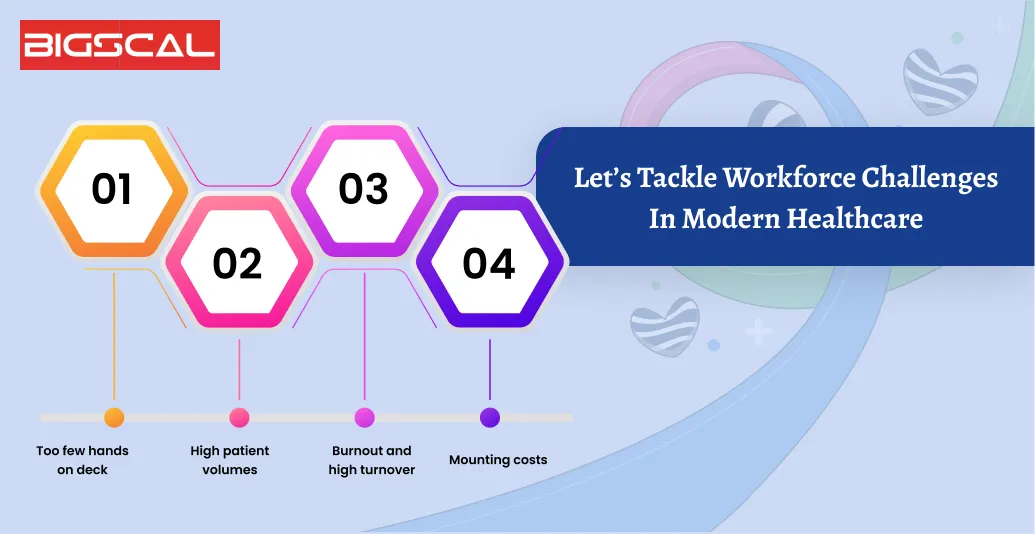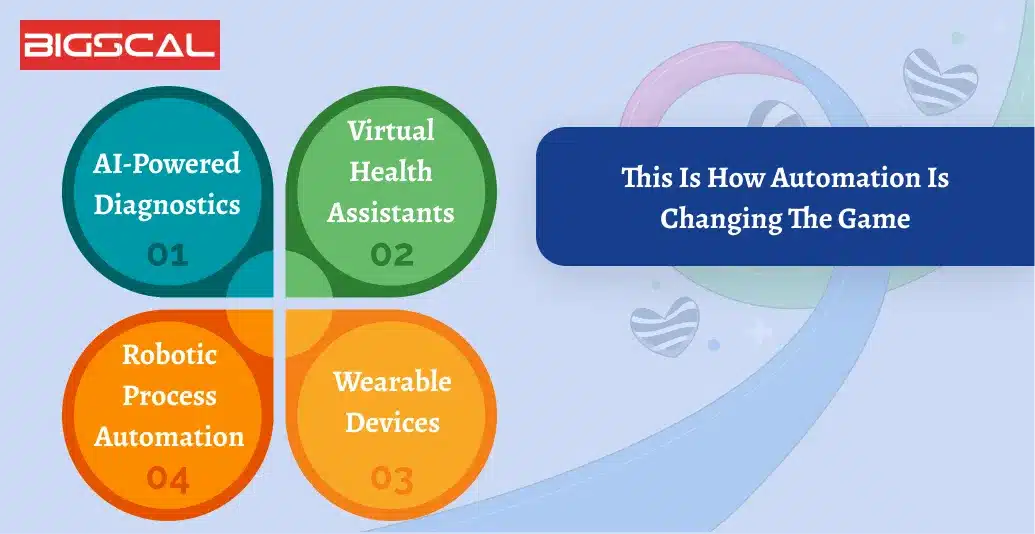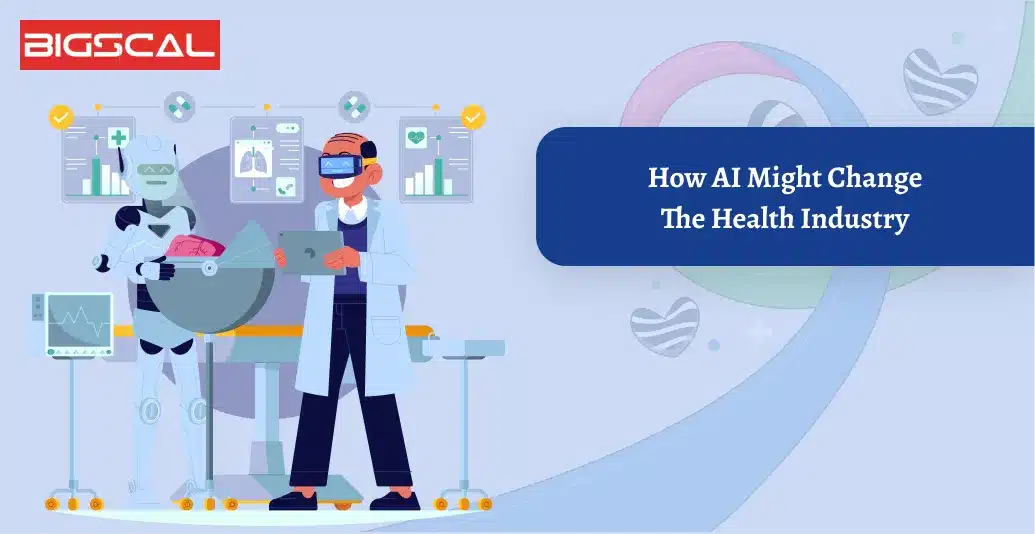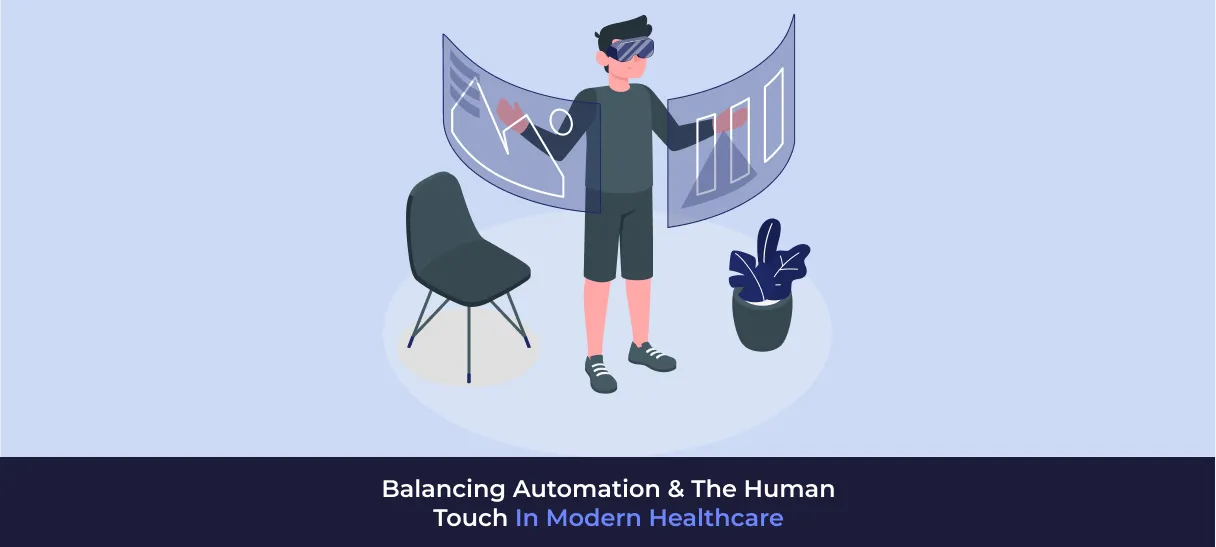Balancing Automation and the Human Touch in Modern Healthcare
Quick Summary: Modern healthcare is increasingly adopting automation — through AI, robotics, and data systems — to rationalize operations, enhance diagnostics, and enhance outcomes. But to deliver compassionate care, establish trust, and guarantee personalized treatment, it continues to be essential to maintain the human touch.
Introduction
Have you noticed that new technologies like smartwatches can know you’re stressed before you do?
AI can diagnose conditions faster than ever and do other health industry-related tasks, such as booking an appointment, creating alerts, and giving support.
We’re living in a tech-driven health revolution! But hold on—while robots might streamline your check-in process or analyze your X-rays, they can’t fully replace a kind doctor and the soothing feeling of a professional assuring you that everything is okay.
So, how do we find the sweet spot between digital efficiency and human care? Let’s explore what a truly modern healthcare experience looks like and how you can get the best out of it.
Let’s Tackle Workforce Challenges in Modern Healthcare

No matter how smart our tech gets, healthcare still runs on people, and there’s no point in sweetening the reality: the health industry is a bit chaotic in some places.
While AI and automation could help lighten the load, healthcare software development providers are still up against some serious workforce challenges.
The Big Hurdles
Here’s what healthcare teams are up against in 2025:
- Too few hands on deck: There simply aren’t enough skilled doctors, nurses, and support staff to go around.
- High patient volumes: One week might be manageable, but the next is a full-blown crunch. Staffing has to flex quickly, but that’s easier said than done.
- Burnout and high turnover: Long hours, emotional stress, and limited support push many caregivers to leave the field. That constant churn makes things harder for everyone left behind.
- Mounting costs: Hiring, training, and retaining top-notch talent isn’t cheap, and it’s only getting pricier. Many facilities are feeling the financial squeeze just to keep up.
These challenges highlight why it’s so important to use automation, not to replace people but to reduce the workloads of health professionals.
This is How Automation Is Changing the Game

Some tedious situations related to typical administrative bureaucracy can be easily solved with AI.
If you’ve ever been stuck on hold trying to schedule an appointment or had to repeat your medical history for the fourth time in a week, you must know what we are talking about. Automation could be the perfect solution for these annoying problems.
Automation in Modern Healthcare is about efficiency, accuracy, and access. Here’s what that looks like in real life:
- AI-powered diagnostics can detect early signs of disease, from skin cancer to diabetic retinopathy, sometimes more accurately than the human eye.
- Virtual health assistants help answer your questions 24/7—no need to wait until Monday morning.
- Robotic process automation (RPA) handles administrative tasks like billing, referrals, and claims faster and with fewer errors.
- Wearable devices track heart rate, sleep, oxygen saturation, and even blood sugar in real time.
How is AI used in healthcare today? It supports decision-making, analyzes data from countless sources, predicts outcomes, improves workflows, and ensures that patients receive timely, personalized care.
Not so Fast There… Humans Still Need Humans
As incredible as automation is, it can not be the answer to everything. Healthcare is more than just data, it’s deeply human. It involves fear, uncertainty, resilience, hope, and healing. These are things machines simply don’t understand (at least, not yet!).
Picture this situation:
- You’re told you might have a serious condition. Would you trust a robot to deliver this news?
- You’re a new parent navigating a scary fever at 2 a.m. Wouldn’t a nurse’s calm reassurance be more comforting than an AI on the screen?
Even the smartest AI can’t match the empathy, creativity, or emotional intelligence of a human caregiver.
Better Care Starts With Connection
At the end of the day, Modern Healthcare is a human experience. Doctors don’t just treat isolated symptoms, they treat people and the complexity that characterizes us.
Studies show that strong human connections improve by 50% the chance of longevity. Small human moments matter, and no AI can replicate them.
Merging the Two as a Mixed Solution
Facing people against machines is the worst idea ever. A better world can be built if we find our how to blend these two powers to create useful results.
Merging the Two as a Mixed Solution
Facing people against machines is the worst idea ever. A better world can be built if we find our how to blend these two powers to create useful results.
What Automation Could Handle
- Appointment scheduling;
- Medication reminders;
- Routine follow-ups;
- Lab test tracking;
- Billing and insurance claims;
- Collecting basic health data.
These are repetitive, time-consuming, and prone to error tasks: exactly what machines are great at.
What Humans Could Handle
- Diagnosing complex or nuanced conditions;
- Delivering sensitive or life-changing news;
- Crafting personalized treatment plans;
- Providing emotional support;
- Advocating for patients;
- Adapting care for unique individual needs.
Roughly speaking, this division could help health professionals organize tasks and allow clinicians to spend less time on screens and more time with you.
After all, you might be asking yourself, “How can AI be used in Modern Healthcare responsibly?” AI can triage faster, analyze patient history deeply, and identify patterns missed by humans, but humans must guide the process and apply judgment.
What About Patients?
You can also take advantage of generative AI in healthcare. You, as a patient, can access real-time health data, symptom checkers, telehealth, and more.
Even though you can’t diagnose, you can keep track of your regular health data to spot when something is out of the ordinary.
Take Control of Your Health Data
- Use technology wisely: From sleep apps to heart monitors, there are tools to help you take better care of yourself.
- Ask the right questions: If an AI tool gives you advice, ask your doctor to confirm it.
- Speak up: If automation ever makes your experience feel cold or confusing, don’t be afraid to ask for more human interaction.
- Track your health trends: Knowing your body—your “normal”—can help your care team catch issues early.
The Drawbacks of Enhanced Solutions
We should tackle the elephant in the room: data security.
With every wearable you use, every app you download, and every telehealth visit you attend, your data is being stored somewhere.
Health data is incredibly valuable and vulnerable. In fact, in 2025, healthcare accounts stood for 17% of all ransomware attacks globally, making it one of the top-targeted industries.
You might be asking yourself: How can I stay safe online? Should I always use a VPN?
Do you want an honest answer? Yes. Especially when accessing and handling such sensitive information as health data. A Virtual Private Network is a great tool to encrypt your internet connection and discourage hackers from accessing your data.
Consider Having a Health Privacy Toolkit
Here’s a quick list of ways to safeguard your health data:
- Use a trusted VPN whenever you’re dealing with sensitive health info;
- Avoid using public Wi-Fi without protection;
- Check the privacy settings on your health apps and wearables;
- Keep software and apps updated;
- Choose providers who take cybersecurity seriously.
You don’t need to use all of these tools to stay safe, but consider using at least one. You can ask professionals for help if you are not a tech-savvy person.
How AI Might Change the Health Industry

We can’t stress this enough across the article: Doctors, nurses, and caregivers aren’t going away, but their roles are evolving. With automation taking over repetitive tasks, health professionals are becoming:
- Care strategists, instead of just task-doers;
- Patient advocates who interpret data and stand by their patients instead of just collecting it;
- Tech-savvy collaborators who know how to work with machines, not compete or deny them.
What’s Coming Next?
If you think healthcare is high-tech now, buckle up. The future holds even more potential:
- AI-driven early detection of chronic diseases;
- Digital twins—virtual models of your body to test treatments;
- Genomic-based precision care;
- Voice-activated assistants for seniors or those with disabilities;
- Augmented reality for training and surgery
- Generative AI in healthcare that creates personalized care plans, simulates surgeries, or drafts patient summaries.
But no matter how advanced we get, the core goal stays the same: making people healthier, happier, and more cared for.
Final Thoughts: It’s Not Man vs. Machine
By this point, we should be over the discussion of robots vs. humans. Understanding that it’s about building a system where the two complement each other is the key to success.
Yes, use the apps.
Yes, embrace the convenience.
But never forget your right to warmth, connection, and compassion in your care. The future of Modern Healthcare is exciting, and even if we must be attentive, we should also trust the process.
FAQ
How is AI used in healthcare right now?
AI is used for diagnostics, data analysis, remote monitoring, predicting patient outcomes, and powering virtual health assistants. It supports faster decision-making and can enhance early detection and personalized treatment.
What is generative AI in healthcare, and how is it different from regular AI?
Generative AI can create everything from medical notes and imaging to simulated patient data. It differs from traditional AI, which mostly analyzes.
How can AI be used in healthcare without replacing humans?
By taking over routine, data-heavy tasks so healthcare professionals can focus on empathy, complex decisions, and patient relationships. AI should support, not supplant, human care.
Are AI health apps safe and reliable?
Most are from trusted developers. Always check reviews and privacy settings, and consult your provider before following app advice. Consider using safety tools like a VPN for better protection.
Can AI make mistakes in healthcare?
AI can misinterpret data or miss context. That’s why human oversight is key.
How can I tell if a healthcare provider is using AI ethically?
They’ll be transparent about AI use, give you choices, and follow privacy laws. Look for clear communication and data protection policies.






